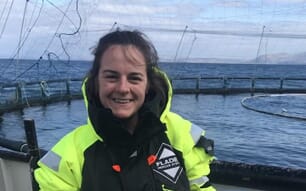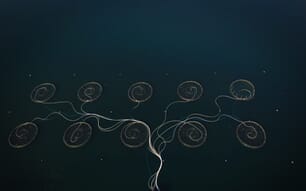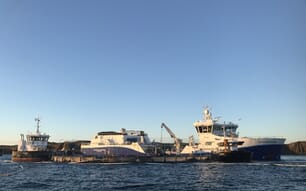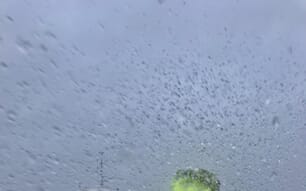Today, 8 March, is International Women’s Day and marks the launch of a new Women in Scottish Aquaculture network. This seemed like a good opportunity to write about something I had wanted to for a while but never knew quite how to approach: being a “woman in aquaculture”.
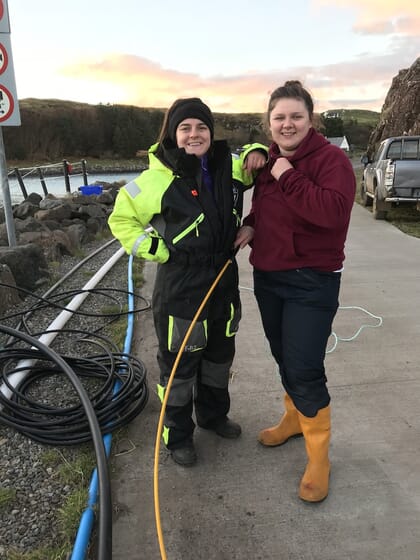
In the short time that I have been involved in the industry, I have become increasingly aware of the number of women working in Scottish fish farming, on farms as well as in roles such as vets, electricians and sales. The chief executives of two leading industry bodies – the Scottish Salmon Producers Organisation and Scottish Aquaculture Innovation Centre – and 40 percent of Mowi’s global workforce are also women.
Furthermore, during my MSc at the Institute of Aquaculture, over half of the class were women and they are now working in aquaculture jobs and research positions around the world – from Scotland to Spain; Canada to California.
But before I started out on Muck, a few of my friends asked if I was “nervous about being the only girl at work” and one person even described me as “brave”. I still find this hilarious, even more so now that I have got to know the guys I work with. But I guess it’s just a reflection of society’s reaction to women doing jobs that they perceive to be for men. Without realising, we’re all guilty of having unconscious biases about a lot of things in life and high on the list for many people is gender stereotypes.
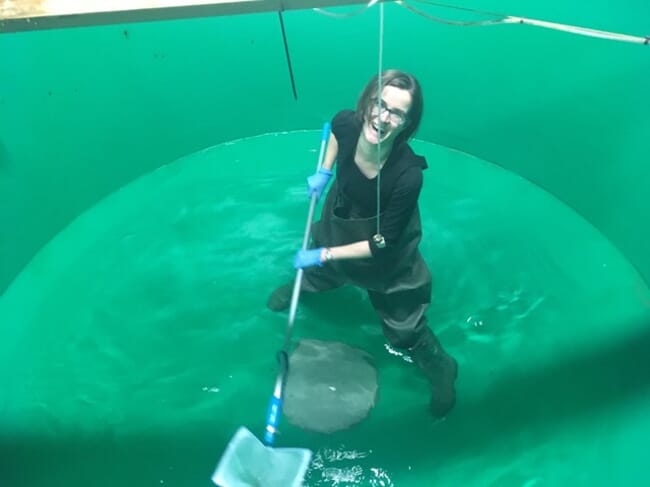
I was never nervous but I suppose it was a change for us all when I started on Muck. On the first day that I met the guys on my shift, I said to them that I didn’t want to be treated any differently because I was female, or because I had come from university. And I am pleased to say that has been the case from day one… for better or worse!
One of them even said a few months ago that I was “one of the boys” and whilst this may not fit with a conventional feminist perspective, I was pretty chuffed. Just like the time the saying “man-up” became “woman-up” on the farm site. These trivial little things cement the fact that I am seen no differently to anyone else and that has always been – and will always be – important to me.
When I started writing this column for The Fish Site, it was initially suggested that it might sit under the umbrella of the Women in Aquaculture series. But I wasn’t keen on this and the reason was simple. I’m not writing this as a woman, for women. I’m writing this as a person who works in fish farming, for anyone who wants to read it. To me, publishing my articles under the Women in Aquaculture title ran the risk of making them less relevant to 50 percent of the population and I didn’t want that.
Whilst being a farm technician might have once been a physically intensive and gruelling job, nowadays, machinery and technology are a big part of what we do. This makes the job accessible to anyone who wants to do it – man or woman.
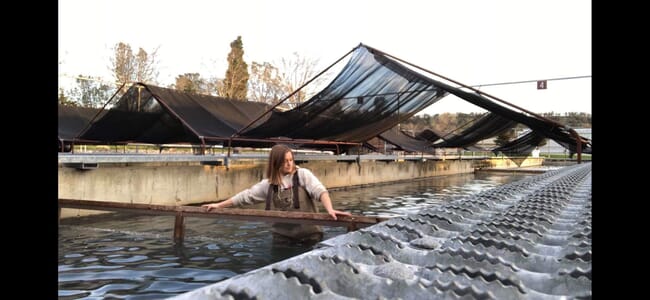
But we can’t deny that men and women are different. We are different biologically, physically and emotionally. Reinforcing these differences are the societal norms that are projected onto us from a young age. Kitchen sets, tiaras and baby toys for girls. Lego, tractors and dinosaurs for boys. Even the stories and Disney movies we grow up with often send the message that girls will only live happily ever after if they find and marry a prince… and have a tiny waist and perfect hair and nails to boot.
It is therefore unsurprising that men and women are often attracted to different careers, and why, traditionally, fish farming has been male-dominated, just like agriculture, engineering and a lot of science-based industries. But there is nothing that I can’t do as a farm technician because I am a woman. Something I read recently sums this up perfectly: “There is no such thing as ‘blue’ or ‘pink’ tasks, only tasks.”
In the six months or so that I have been working on Muck, I can think of a handful of times when I couldn’t do something as well as the other guys, mainly due to a difference in strength. Whilst I find this really irritating on a personal level, I have to remind myself that, fine, I’m not as strong as them, but so what?
We all bring different skills and knowledge to the job and whilst brute strength might not be at the top of my list, it doesn’t make me any less capable or worthy. More often than not it is actually my height that I find challenging when it comes to certain things. Much to everyone’s amusement.
Undoubtedly our upbringing has some bearing on the career choices we make in adult life. I was lucky enough to be brought up to believe that I could do or be anything I wanted. To me, there was never a question of whether something was for boys or girls and I have never come across a barrier to anything in life because of my gender – and that goes for fish farming too.
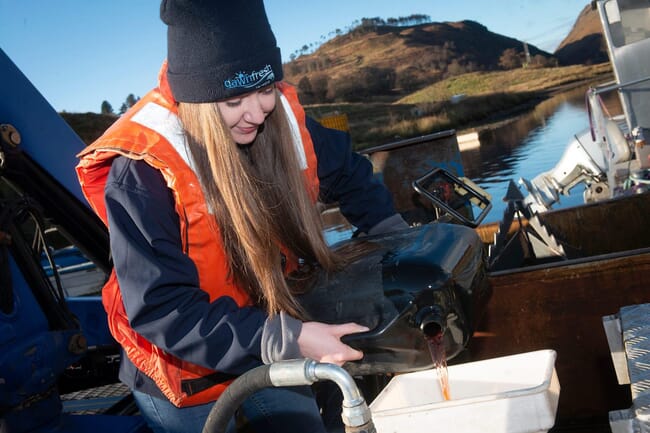
Being female has never defined me nor been a hindrance in achieving my personal or professional goals. I hope this day reminds all women that there is no reason why gender should define them in their pursuit of aquaculture careers – both in Scotland and around the world.
Whilst I have no direct involvement with the new Women in Scottish Aquaculture network, one of its aims is to promote aquaculture as a career choice to school leavers, those in further and higher education and those working in other sectors. This is something I think is really important.
For me, the best way to encourage more women into sectors such as aquaculture is to engage with girls at school. Show them the career opportunities that are out there, guide them in their subject choices, provide role models and nurture an interest in science. Only then will you have more women applying for jobs, more women working in the industry and more women reaching senior positions.
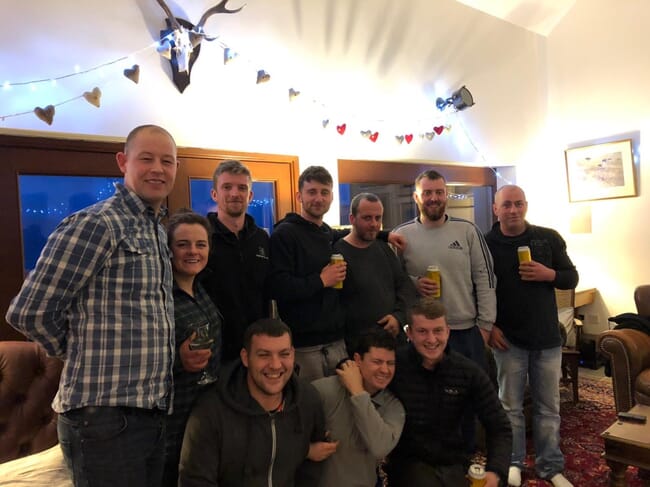
But for me, that doesn’t just apply to girls. As an industry, we always want the best people for the job regardless of their gender. We need to appreciate and harness the different skill sets that different people can bring to the Scottish salmon industry. Engagement with all school children has to be the first stage in achieving this and it is something that Mowi already do regularly.
We won’t (and shouldn’t) see a significant increase in female aquaculture employees overnight and I think it’s important to stress that this is not the intention of initiatives like the Women in Scottish Aquaculture network or The Fish Site’s Women in Aquaculture series.
They are not designed to create a bias in favour of women, but to gradually work towards a more gender-balanced workforce which has been proven time and time again to be of benefit in any business. In my opinion, this is something that we should all support and strive for.
We all have a role to play in breaking down gender stereotypes, in teaching girls (and boys) that there is more to life than marrying a prince (or being that prince), and in showing that aquaculture is an exciting sector to work in and that there are many ways to get involved.
My hope in writing this column has always been to be honest and transparent about my job and experiences. If even one girl or boy, man or woman is motivated to get involved in fish farming as a result, then I will be content. And whilst I am proud to be a woman on International Women’s Day, I am also happy to be “one of the boys” because, at the end of the day, we’re all just people.

